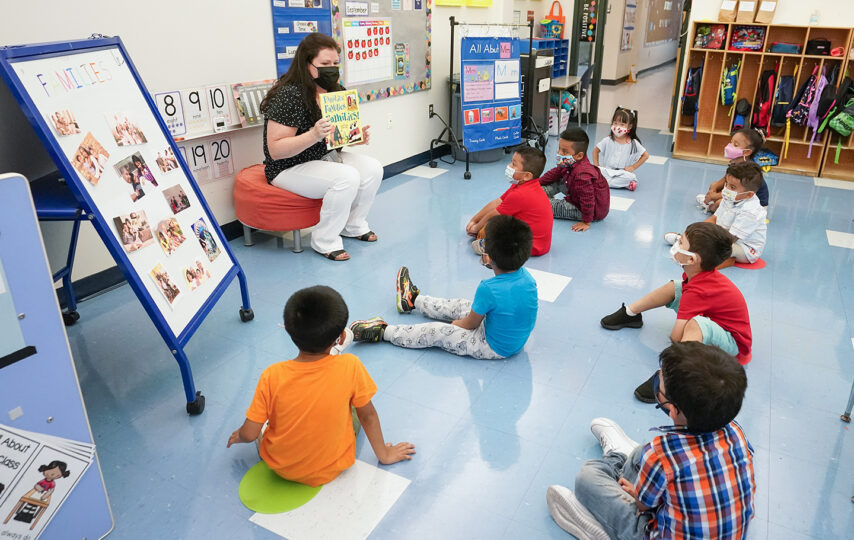Is your little one ready for preschool already?
Congratulations! It’s going to be a milestone in your as well as your child’s life. You need to be careful in evaluating your possibilities and go for the best one.
A simple preschool near me on Google search would present you with far too many options that you need. However, you must first know what to look for, shouldn’t you?
Here’s a small guide to help you out. After reading this, you will see what actually constitutes a good preschool.
1. Educational Philosophy
There are many ways a school can be run. Therefore, the first thing you should look for is the educational philosophy of preschools.
- Do they encourage child-led learning?
- Do they have both structured and unstructured playtime?
- Do they facilitate a project-based curriculum?
- Do they believe in homework and grades?
- Do they offer a school readiness program?
- Do they promote learning through multiple perspectives?
Every preschool is different, and so is every kid. You can choose a preschool based on what you observe your kid likes.
If your kid is more inclined towards creative stuff, you can look for a preschool with a project-based curriculum. It means your child will receive a customised curriculum based on his/her interests rather than one uniform curriculum.
2. Snacks and Nutrition
Children need to learn about nutrition from an early age. The habits and routines they develop during this phase stick with them for life.
Children are picky eaters. It’s a struggle for parents to make their children eat nutritious food. However, it is relatively easier for teachers to pull this off.
Eating together with their peers can boost your child’s social skills as well as their eating habits. For all these reasons, talk about the preschool’s focus on nutrition and their meal plan.
- Do they help hygienic eating habits such as washing their hands?
- Do they have a rotating meal plan?
- Do they teach children to clean their plates after eating?
Food is much more than just having a meal. It is a way of learning, expression, and communication. All these help in building good food habits.
It is also important to inform the teachers about any allergies your child may have.
3. Teacher’s Education and Experience
It is not easy to teach children. Unless the teaching staff is well-educated and highly experienced, it’s going to be difficult to handle children.
Ask the following:
- An educator’s training
- Education
- Experience with the current curriculum
Additionally, outside of their educational background, the teachers must also be nurturing, positive, and dedicated. So, don’t just stop at the administration office! Meet and interact with the faculty.
4. Visit the School Campus
Visit the preschools you have selected before deciding.
A preschool need not be large or extravagant. However, it ought to be secure. Once you are certain of the school’s security and safety, determine whether the building is geared towards children.
Check:
- If the classrooms and hallways are well lit
- If they have broad stairs and anti-slip mats
- If the restrooms are neat and clean
- If there are dedicated attendants
- If the campus is child-friendly with appealing colours and accessories (makes it easy for children to relate to the environment)
Your child will spend about hours every day in that place, so make sure it is up to scratch. It is much better to take your kid with you to have a look before making the decision. If they connect to the place or people there, it makes your job easier!
5. A Day in Your Child’s Life
We normally look at each aspect of a preschool individually, but for once, look at your child’s day as a whole. How does he/she spend a day at preschool?
You have to check this as different preschools design the day differently. A well-regarded preschool offers a wide range of ways for children to learn and grow. While some schools make Yoga a part of their program, whilst some make daily cooking a priority.
Before coming to a decision, see what all are included in their agenda.
- Formal and informal experiences
- Interactions
- Indoor and outdoor play
- Group time
- Rest/sleep time
The reason for looking at the overall day is to understand if a particular program can be overwhelming for your child. There should be balance, and it is essential to find a preschool like that!
6. Distance from Home
The final but important one to consider is the location of the school. It is not a good idea to select a preschool that is far away from home. It can be taxing on both you and your child.
By making the commute as short as possible, you are making the kid comfortable to be away from home for a few hours. It can also be helpful if there is some emergency and you can get there quickly.
Look for preschools close to home and enrol in the best-suited one. However, if you are set on a specific preschool that is a bit far, enquire if they offer any transport facilities. Commuting with kids of the same age can help ease the transition!
Final Word
Finding your child’s first school is a difficult task as you want the best! Because it is a significant step in your child’s development, it certainly deserves all the attention.
We hope this article will help you find the best possible preschool for your child. You can begin by googling “early learning near me,” and list out possible options. Let us also add one notable name to your list: ToyBox—one of the best childcare centres.
Now use all these tips to filter the list and find the right one!
Good luck!







